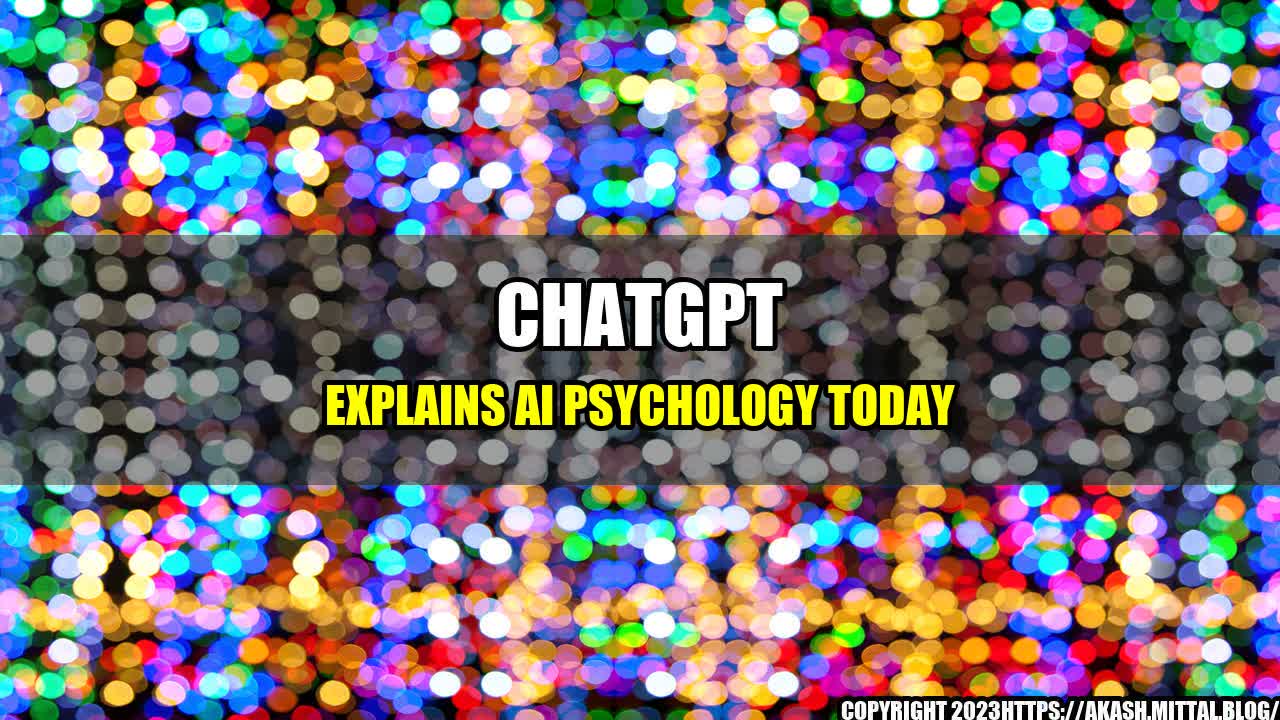An AI Therapist?
Imagine going to a therapist's office and instead of sitting across from a human therapist, you interact with an AI-powered therapy bot. That scenario may seem far-fetched, but it's not. AI technology has come a long way, and the field of psychology is beginning to explore the benefits that these technologies can offer.
In March 2017, Woebot, an AI-fueled therapy chatbot, was launched as part of a Stanford University research project. Woebot was designed to be "a self-help resource that's always available," according to Alison Darcy, the clinical psychologist and Stanford researcher who led the project.
Woebot, uses cognitive behaviour therapy techniques and natural language processing to communicate with users in chat format. The chatbot will ask the user about their emotional state and offer coping strategies and techniques for dealing with anxiety and depression.
Woebot is just one example of how AI is being used in psychology. Mental health practitioners are also experimenting with AI tools for screening and diagnosing disorders and assisting with treatment. AI-powered wearable devices are tracking people's experiences and symptoms in real-time, providing valuable data for clinicians. In this article, we'll explore how AI is changing the field of psychology.
Quantifiable examples
AI is revolutionizing the field of psychology and is being used in various ways to improve outcomes for patients. Here are some examples of how AI in psychology can be quantified:
- AI-powered chatbots, such as Woebot as mentioned above, have been found to be as effective as traditional therapy in treating mild-to-moderate depression in young adults (according to a 2020 study published in Lancet Digital Health).
- AI-powered tools for screening and diagnosing disorders are increasing the speed and accuracy of diagnosis, resulting in improved outcomes for patients.
- AI-powered virtual reality exposure therapy is an effective tool for treating anxiety disorders, specifically social anxiety. According to a 2020 review of studies published in the Journal of Anxiety Disorders, virtual reality exposure therapy "provides superior outcomes and is associated with fewer treatment sessions compared to traditional exposure therapy."
AI and psychology: Conclusion in 3 points
- AI technology has the potential to significantly improve outcomes in the field of psychology.
- AI-powered tools, such as chatbots and wearables, are being used for screening, diagnosis, and treatment of mental disorders, and are proving to be effective.
- While AI in psychology is still in its infancy, the field holds great promise and could transform mental health treatment in the future.
Personal anecdotes and case studies
Personal stories and case studies can provide valuable insight into the impact of AI in psychology. Here are a few examples:
Case Study: Karim's Story
Karim was a student who struggled with test anxiety. He had difficulty concentrating during exams and often found himself getting overwhelmed and anxious. Karim's school implemented an AI-powered software that monitored students' eye movements and facial expressions during exams. The software was able to detect when Karim was struggling and would provide him with helpful techniques and reminders to help him manage his anxiety. Within a few weeks of using the software, Karim reported feeling more calm and focused during exams, and his grades improved.
Personal Anecdote: My Experience with Woebot
As someone who struggles with anxiety, I was intrigued when I first heard about Woebot. I downloaded the app and began using it whenever I felt overwhelmed or anxious. At first, I was skeptical about talking to a chatbot instead of a human therapist, but I quickly found that Woebot was able to offer useful strategies and techniques for managing my anxiety. I appreciated the fact that I could access Woebot whenever I needed to, and I found it to be a helpful resource for managing my mental health.
Practical tips for using AI in psychology
If you're interested in exploring the benefits of AI in psychology, here are a few tips:
- Be open-minded. While AI in psychology may seem unconventional, it's important to keep an open mind and consider the potential benefits.
- Do your research. There are many different AI-powered tools and resources available for mental health, so it's important to do your research and find what works best for you.
- Don't hesitate to seek out traditional therapy if needed. While AI can be a helpful tool, it's important to remember that it's not a replacement for traditional therapy.

Curated by Team Akash.Mittal.Blog
Share on Twitter Share on LinkedIn